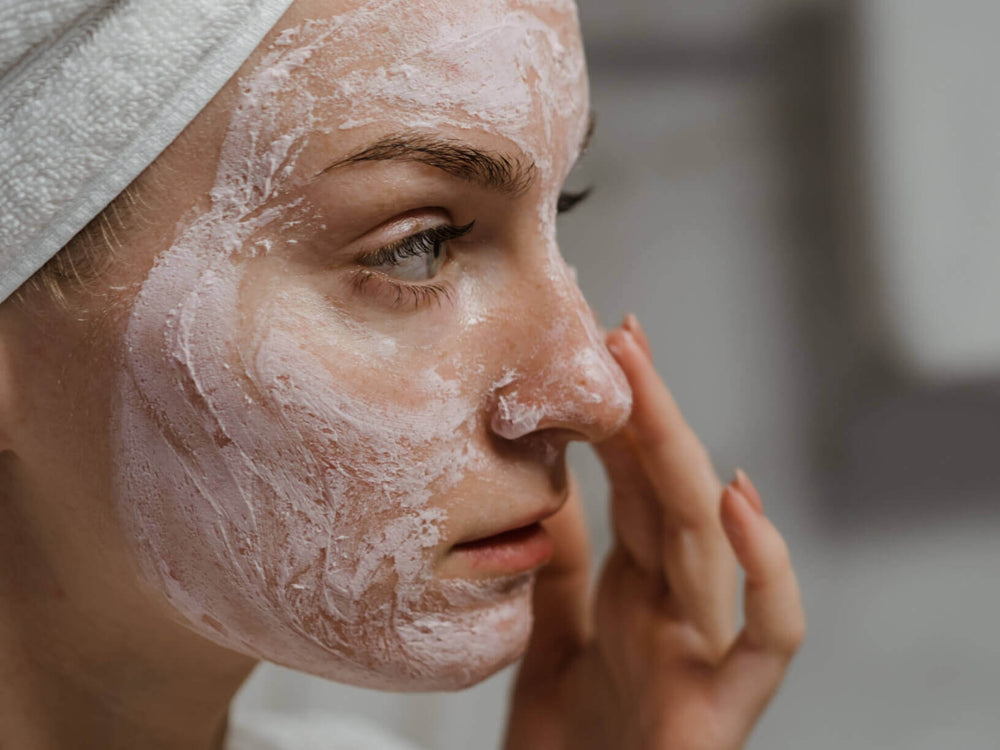To get healthy skin, wash up regularly, avoid excessive sun exposure, moisturize to prevent dryness, manage stress, get enough sleep, and maintain good communication with your healthcare provider. Taking these simple steps can help you achieve the healthiest skin possible.
Tips For Healthy Skin
Having healthy skin is essential for both our physical and emotional well-being. You can achieve and maintain a clear, glowing complexion by following a few simple tips. This article will discuss three important aspects of maintaining healthy skin: washing and sun protection, skincare routine, and lifestyle factors.
Washing And Sun Protection
Proper cleansing and sun protection are the foundations of healthy skin. Follow these tips to keep your skin clean and protected from harmful UV rays:
- Wash your face with a mild cleanser twice daily to remove dirt, oil, and impurities.
- Use lukewarm water instead of hot water, as hot water can strip the skin of its natural oils.
- Gently pat your skin dry with a soft towel, avoiding harsh rubbing that can irritate.
- Apply a broad-spectrum sunscreen with at least SPF 30 before going outside, even on cloudy days. Reapply every two hours or more frequently if you’re sweating or swimming.
- Wear protective clothing, such as wide-brimmed hats and long sleeves, to shield your skin from direct sun exposure.
- Avoid tanning beds and sunlamps, as they emit the same harmful UV radiation as the sun.
Skincare Routine
Establishing a consistent skincare routine is crucial for maintaining healthy skin. It’s essential to cleanse, exfoliate, moisturize, and protect your skin daily. Here are the critical steps to include in your skincare routine:
- Cleansing: Use a gentle cleanser to remove dirt and makeup. Avoid harsh products that can disrupt the skin’s natural balance.
- Exfoliating: Exfoliate once or twice weekly to remove dead skin cells and promote cell turnover. Choose a gentle exfoliator suitable for your skin type.
- Toning: Apply a toner to balance the skin’s pH levels and refine the appearance of pores.
- Moisturizing: Hydrate your skin with a moisturizer suitable for your skin type. Look for ingredients like hyaluronic acid and ceramides to lock in moisture.
- SPF: Finish your skincare routine by applying a broad-spectrum sunscreen to protect your skin from UV rays.
Lifestyle Factors
Aside from maintaining a proper skincare routine, your lifestyle habits also play a significant role in achieving and maintaining healthy skin. Consider the following factors:
- Diet: Eat a balanced diet rich in fruits, vegetables, whole grains, and lean proteins. These foods provide essential nutrients that promote skin health.
- Hydration: Drink adequate water daily to keep your skin hydrated and flush out toxins.
- Stress Management: Find healthy ways to manage stress, such as exercise, meditation, or engaging in hobbies that bring you joy.
- Sleep: Get enough quality sleep each night to allow your skin to repair and rejuvenate itself.
- Quit Smoking: Smoking not only contributes to premature aging but also reduces blood flow to the skin, depriving it of essential nutrients.
By implementing these simple tips into your daily routine, you can enjoy the benefits of healthy, radiant skin. Consistency is key, so stick to the skincare routine and lifestyle habits that work best for you. Your skin will thank you!

Functions Of The Skin
When it comes to achieving and maintaining healthy skin, understanding the functions of the skin is essential. The skin, the body’s largest organ, performs several vital tasks contributing to our overall well-being.
Protective Barrier
The skin acts as a protective barrier against mechanical, thermal, and physical injury and hazardous substances. It forms a physical barrier that prevents external elements from harming our internal organs and systems.
Moisture Regulation And Uv Protection
In addition to its protective role, the skin also plays a vital role in regulating moisture levels. It prevents excessive loss of moisture, keeping the skin hydrated and supple. Moreover, the skin reduces the harmful effects of UV radiation from the sun, thanks to the presence of melanin pigment and other protective mechanisms.
Sensory And Temperature Regulation
Our skin has sensory organs that detect touch and temperature changes. It helps us perceive the environment around us and respond accordingly. The skin also plays a crucial role in regulating body temperature, ensuring our internal systems operate optimally.
These functions collectively make the skin a vital organ that requires proper care and attention. By understanding these functions, we can optimize our skin’s health and promote its overall well-being.
Natural Ways To Improve Skin Health
Your skin is the largest organ in your body, and keeping it healthy is crucial for its appearance and overall function. While plenty of skincare products are available on the market, sometimes the best way to achieve healthy skin is by turning to natural remedies. In this article, we will explore some simple yet effective tips to improve skin health using natural methods.
Diet And Hydration
Eating a balanced diet rich in vitamins and minerals is essential for healthy skin. Incorporate foods high in antioxidants, such as berries, leafy greens, and nuts, to combat free radicals and reduce inflammation. Additionally, staying hydrated by drinking plenty of water throughout the day helps to flush out toxins and keeps your skin moisturized from the inside out. Remember, a well-nourished body is more likely to manifest healthy skin.
Stress Management
High stress levels can wreak havoc on your skin, leading to breakouts, dullness, and other concerns. Implementing stress management techniques, such as practicing yoga or meditation, can help reduce stress hormones and promote healthy skin. Taking time for self-care, getting enough sleep, and engaging in activities that bring joy are also vital to maintaining overall well-being, reflecting on your skin’s health.
Exfoliation And Antioxidants
Exfoliating your skin regularly helps slough off dead skin cells, revealing a fresher and smoother complexion. You can create a gentle homemade exfoliator using natural ingredients like oatmeal and honey. Antioxidants protect your skin cells from damage caused by free radicals. Incorporate foods rich in antioxidants, like citrus fruits, green tea, and dark chocolate, into your diet. You can also consider using skincare products with antioxidants to further enhance your skin’s health.
By implementing these natural methods, you can improve your skin’s health without relying solely on commercial skincare products. Remember to be consistent with your routine, as natural remedies may take time to show noticeable results. Embrace these simple tips and enjoy the benefits of healthy, radiant skin!


Frequently Asked Questions Of 6 Simple Tips To Get Healthy Skin
How Can I Get The Healthiest Skin?
To get the healthiest skin, follow these tips: 1. Wash up and protect yourself from the sun. 2. Avoid dry skin and reduce stress. 3. Get enough sleep and eat a healthy diet. 4. Speak up and manage your skincare routine with cleansing, exfoliating, toning, moisturizing, and using SPF.
5. Use mild cleansers, avoid scrubbing, and apply sunscreen daily.
How Can I Make My Skin Healthy?
To make your skin healthy, follow these tips: – Protect yourself from the sun – Don’t smoke – Treat your skin gently – Eat a healthy diet – Manage stress – Follow a skincare routine with cleansing, exfoliating, toning, moisturizing, and using SPF.
These steps will help keep your skin looking and feeling its best naturally.
What Are The 5 Basics Of Skin Care?
To have the healthiest skin, follow these five basics of skin care: 1. Protect yourself from the sun by using sunscreen and wearing protective clothing. 2. Don’t smoke, and treat your skin gently. 3. Maintain a healthy diet and manage stress.
4. Follow a skincare routine that includes cleansing, exfoliating, toning, moisturizing, and using SPF. 5. Stay hydrated and include fruits and vegetables rich in antioxidants.
What Are 5 Ways Your Skin Helps You?
The skin helps you in 5 ways: it acts as a protective barrier, prevents moisture loss, reduces harmful UV radiation effects, detects touch and temperature, and helps regulate temperature.
Conclusion
Incorporating these simple tips into your skincare routine can help you achieve healthy, glowing skin. Remember to protect your skin from the sun, avoid dryness, reduce stress, get enough sleep, and speak up for your skincare needs. By following these guidelines, you can maintain the health and vitality of your skin for years to come.
Take the time to care for your skin and enjoy the benefits of a radiant complexion.
DIY hair oils are some of the most important ingredients to have in your beauty arsenal. They add shine, manage frizzy hair, and help improve your hair health.